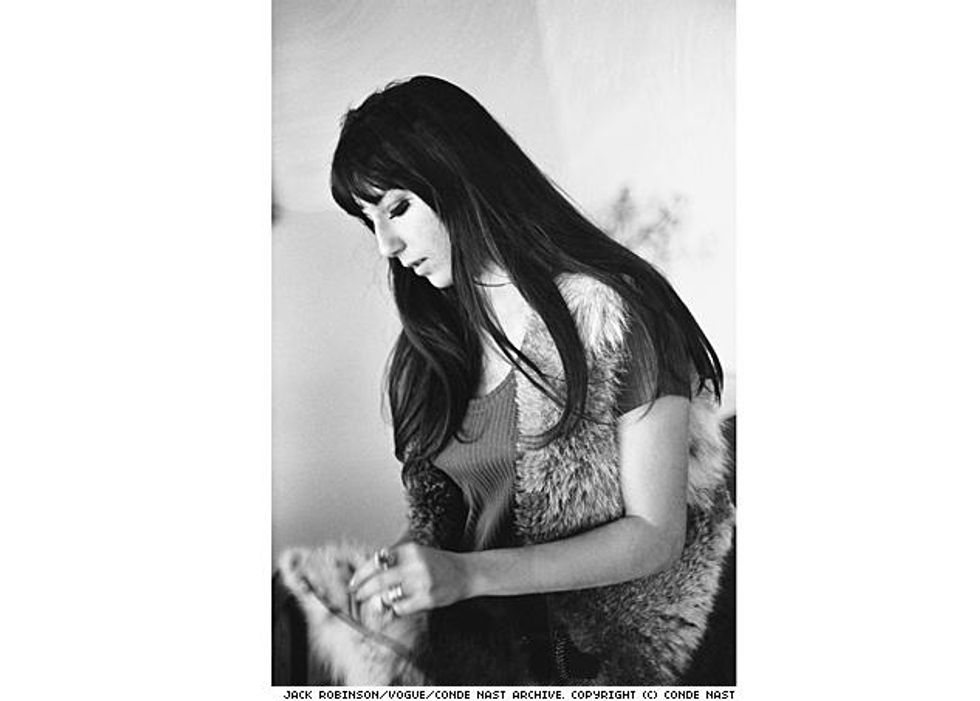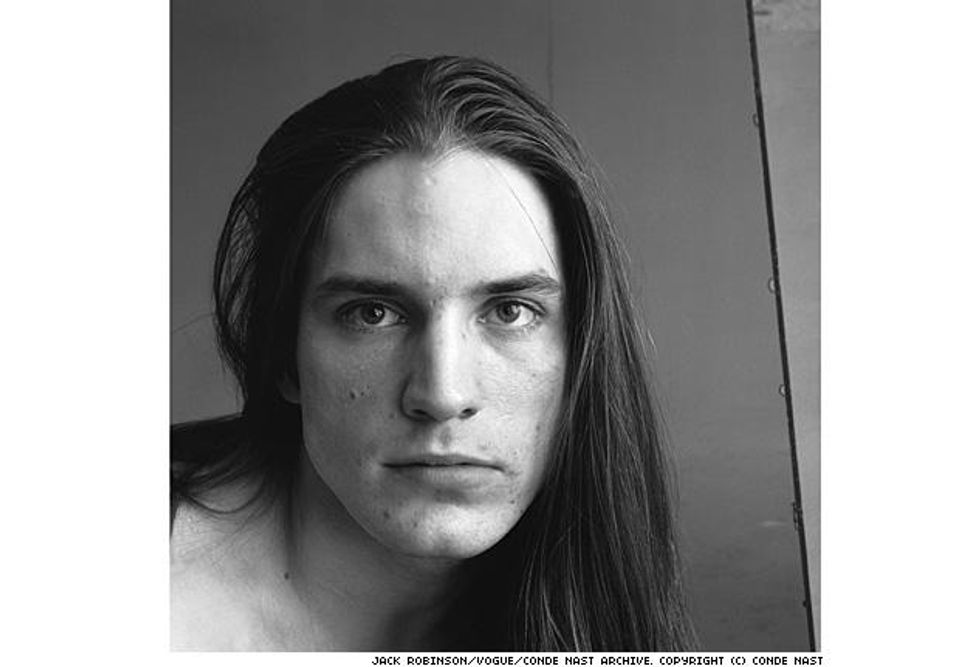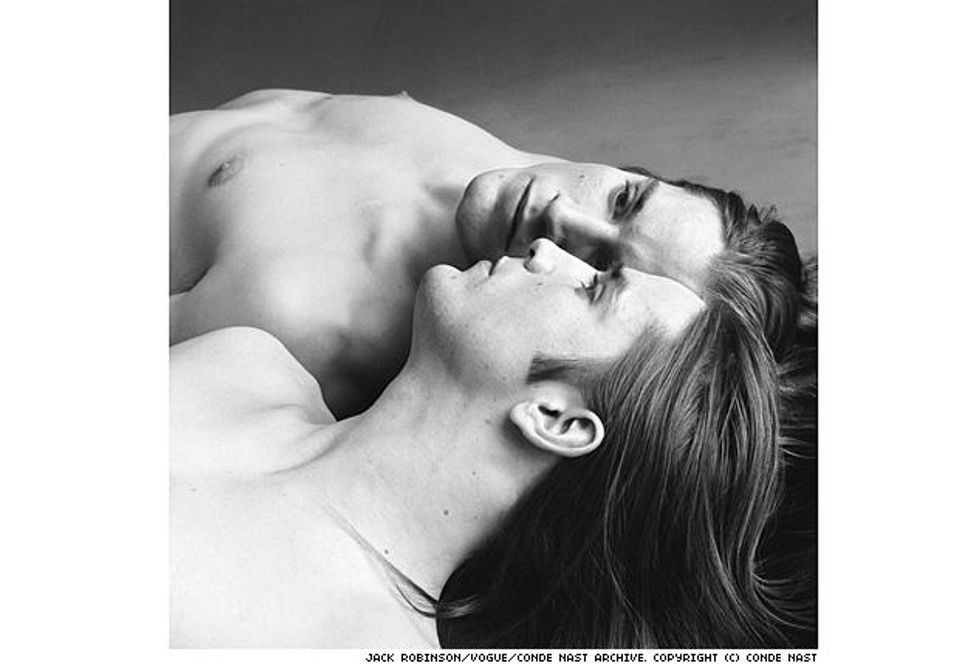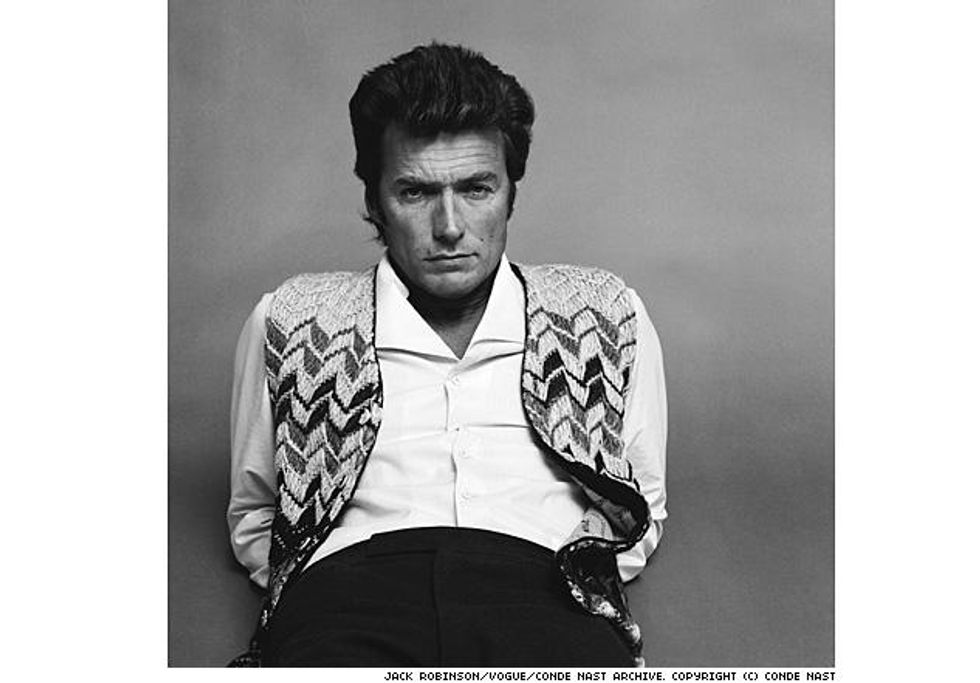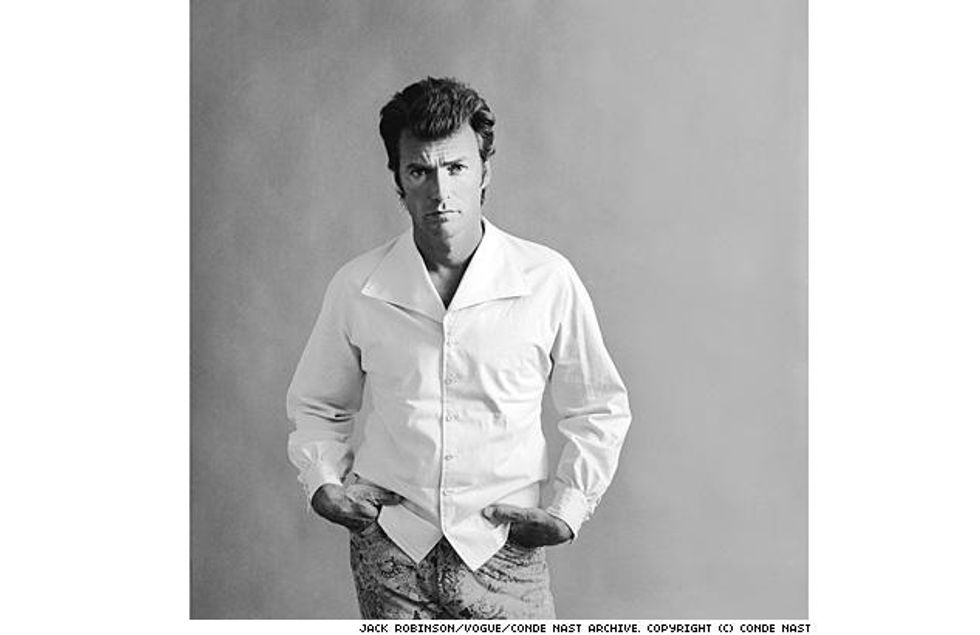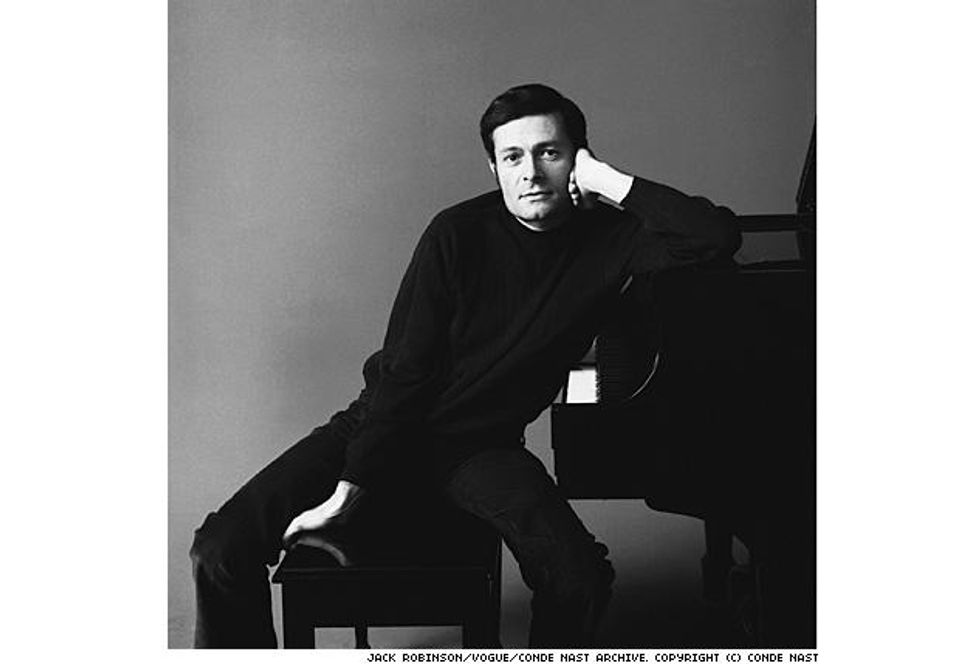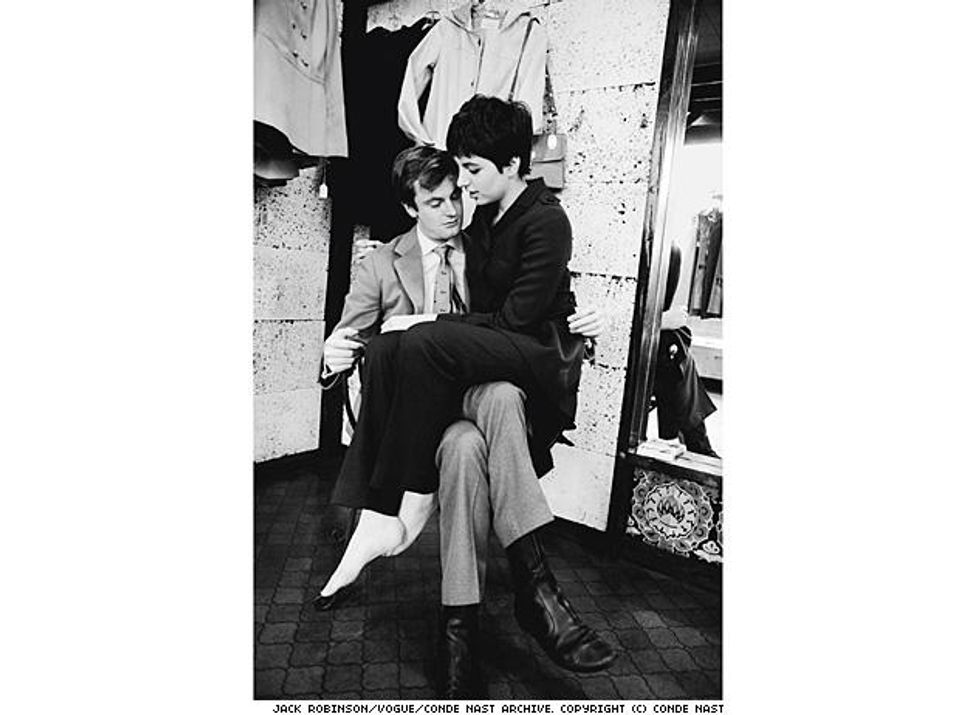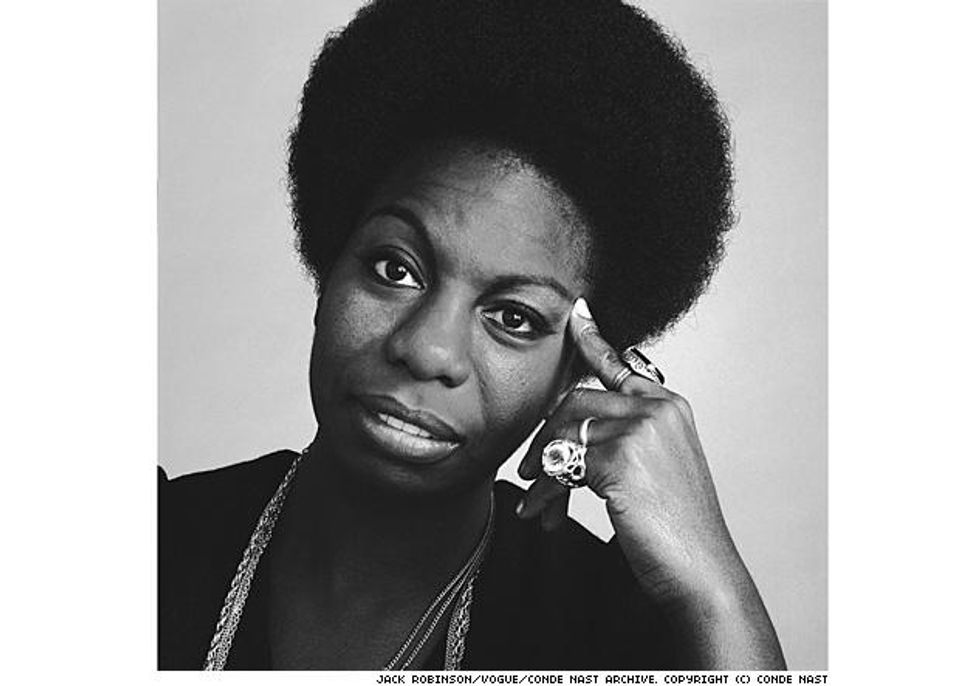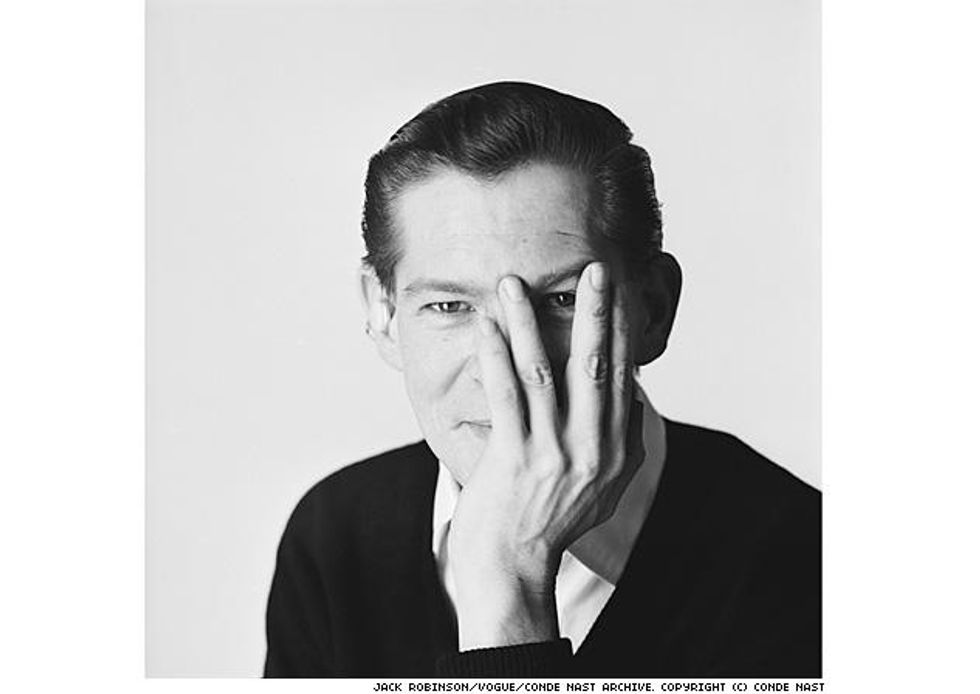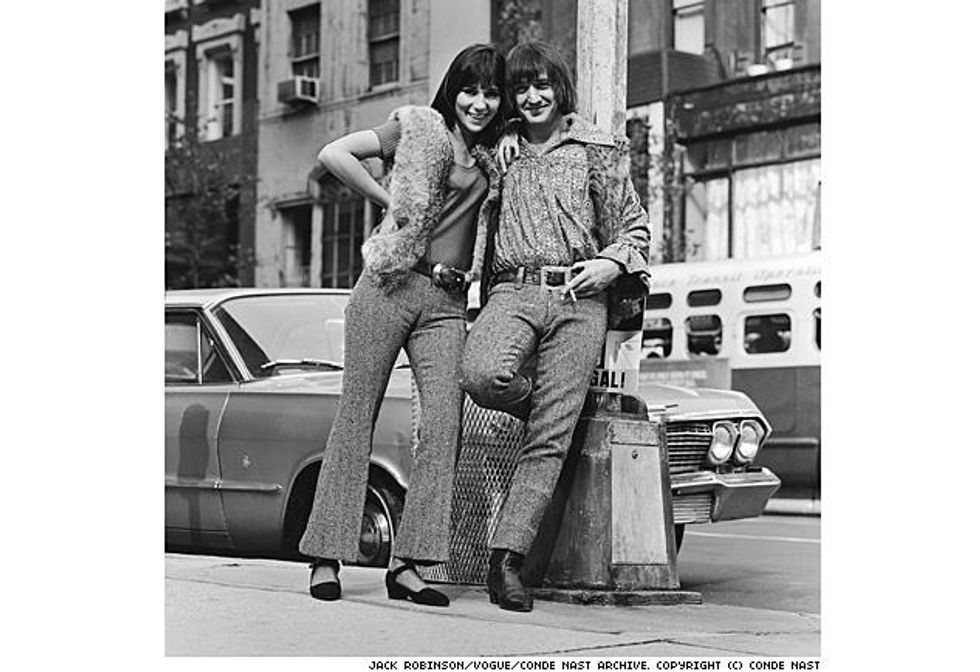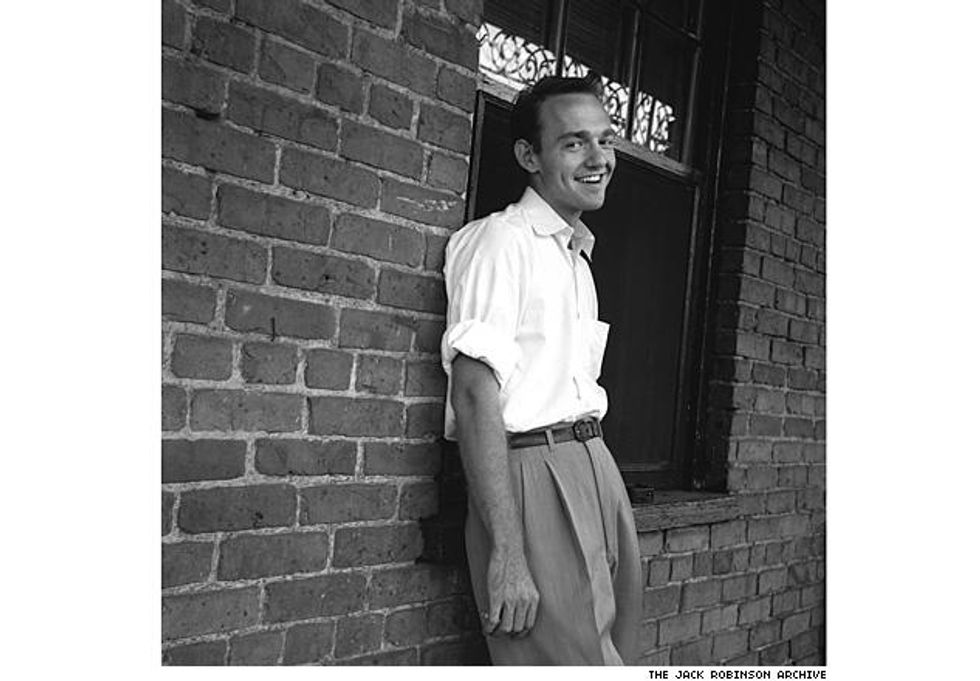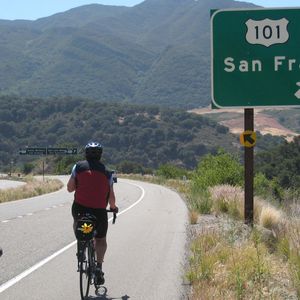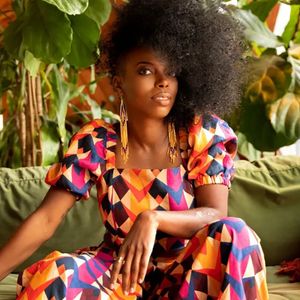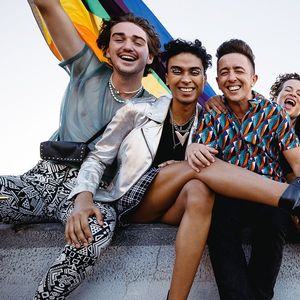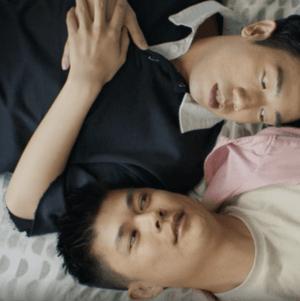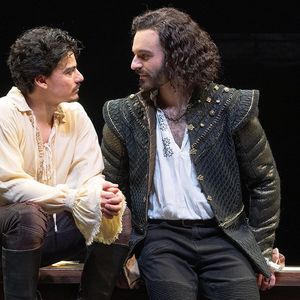
Helmut Berger, the Austrian film legend that American viewers probably know best for his role on 1980s-era drama Dynasty, was just 25 when he posed for Robinson in 1969.
 In a mere 17 years, photographer Jack Robinson amassed a huge body of work that captured the faces and fashions of the 1960s. When he died at 69 in a Memphis hospital on December 15, 1997, his friend Dan Oppenheimer -- who owns the Rainbow Stained Glass Studio in Tennessee and had worked with Robinson on stained glass projects -- was the surprise sole beneficiary of his will. While going through his things, Oppenheimer, probably as close a friend as Robinson had then, discovered two things: that he had been a famed photographer and that he was gay.
In a mere 17 years, photographer Jack Robinson amassed a huge body of work that captured the faces and fashions of the 1960s. When he died at 69 in a Memphis hospital on December 15, 1997, his friend Dan Oppenheimer -- who owns the Rainbow Stained Glass Studio in Tennessee and had worked with Robinson on stained glass projects -- was the surprise sole beneficiary of his will. While going through his things, Oppenheimer, probably as close a friend as Robinson had then, discovered two things: that he had been a famed photographer and that he was gay.
Oppenheimer also discovered 150,000 images from Robinson's work, many of them shots for Vogue (under the direction of legendary editor Diana Vreeland); many others were simply revealing snapshots of the generation that gave us the Summer of Love, Woodstock, and the British rock invasion. For the first time, those images are collected in this new tome, Jack Robinson On Show: Portraits 1958-72 ($39.95, Palazzo Editions, distributed by TSP/IPG), a compilation of some of that generation's most famous subjects including Joni Mitchell, Clint Eastwood, Jack Nicholson, Dennis Hopper, Sonny and Cher, and Cybill Shepherd (who provided the book's foreword).
"There is an explorative sensitivity in his work, which could be consequence of his sexuality. Some of his portraits are remarkable in that, even with the most macho of men, a trace of the feminine side of their psyche seems to emerge," writes George Perry in the introduction. "Warren Beatty, then the most celebrated of Hollywood womanizers, becomes in black leathers a gay icon, and when revealed donning his neckware, a narcissistic fob. Has anyone else ever thought of disporting Clint Eastwood in knitwear? Or having Michael Caine strike a camp pose with onne elbow on the mantlepiece?"
Here are just a few of Robinson's captivating portraits. The book can be found at IPGbook.com.

Cher, photographed at the Waldorf Hotel in New York in 1970, would go on to win numerous awards for her music and acting (including an Oscar for her role in Moonstruck). The gay icon also became a fierce LGBT activist after son Chaz came out.

Joe Dallesandro was a Warhol superstar thanks to his appearance in the films of Andy Warhol. His "Little Joe" tattoo on his upper arm (his nickname, of course) was made infamous in Lou Reed's 1972 hit song, "Walk on the Wild Side." In the early '70s, Dallesandro was one of the first gay male sex symbols.

Joe Dallesandro, who John Waters called "A wonderful actor who forever changed male sexuality on the screen" is openly bisexual and has continued acting well into the modern era. His latest film was 2008's Three Stories About Evil and he previously appeared in numerous films including Cry-Baby, Cotton Club, and Guncrazy.

Robinson photographed Clint Eastwood on July 10, 1969, for a "Men in Vogue" feature just as Eastwood's only musical, Paint Your Wagon, was about to be released. It may be the only time the future Dirty Harry would be photographed in knitwear and paisley pants (see next page).

Clint Eastwood in 1969 looks strikingly like modern-era Hugh Jackman.

Composer and lyricist Jerry Herman, whose earliest Broadway musicals were Hello Dolly! and Mame, was 38 years old when he posed for Robinson. Herman, who has been HIV-positive since 1985, received the Tony Award for Lifetime Achievement in the Theater in 2009. One of his biggest hits, La Cage aux Folles, is still the only show to win a Best Musical award for every staged Broadway production (in 1983, 2005, and 2010).

Peter Allen and Liza Minnelli photographed just three years after Minnelli became the youngest Tony winner ever (at 19). The couple married in 1967 and divorced in 1974. He later came out as gay and had a 15-year relationship with Gregory Connell that lasted until Connell's death from AIDS in 1984. Allen, an Australian performer, died in 1992 from throat cancer.

The legendary bisexual singer Nina Simone who, when photographed in 1969, had been dubbed the "High Priestess of Soul."

Gay singer-songwriter Johnny Ray was so popular in the 1950s that some folks called him the "original Elvis." His highly emotional and histrionic singing caused teenagers so much excitement that he was condemned by parents and religious figures. Ray, who was best man at Judy Garland's wedding, has been name checked in numerous songs inlcuding Billie Joel's "We Didn't Start the Fire" and Dexys Midnight Runners' 1982 smash "Come On Eileen."

Sonny & Cher were one of the most popular husband-wife acts in Hollywood history. Photographed in 1966, the duo had already released their most iconic songs, "I Got You Babe" and "The Beat Goes On." By 1975 they'd be divorced -- Sonny even became a congressman --but not before introducing the world to their only child, who would grow up to be LGBT activist (and Dancing with the Stars contestant) Chaz Bono.

This photo, from the Jack Robinson Archive, shows the Jack Robinson in New Orleans in the 1950s. He went to the city to attend Tulane University but ended up as a portrait photographer for the city's elite as well as a reporting on nightlife and Mardi Gras during the gay-friendly proto-beatnik era of Tennessee Williams.
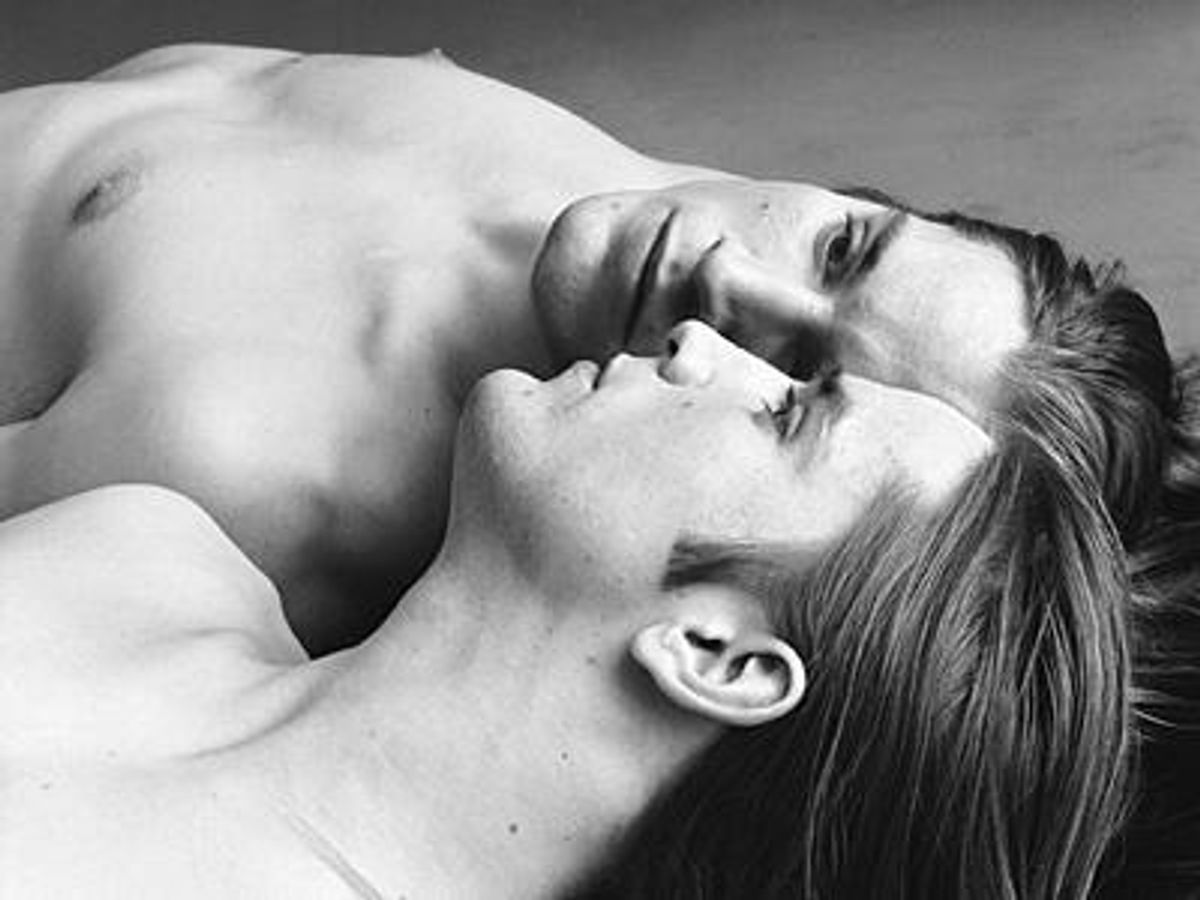

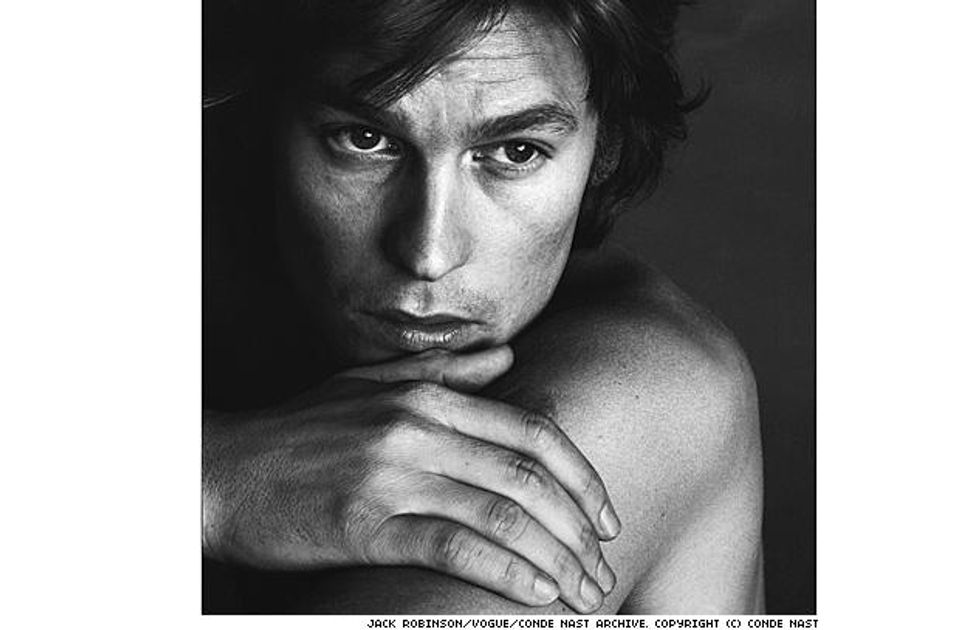
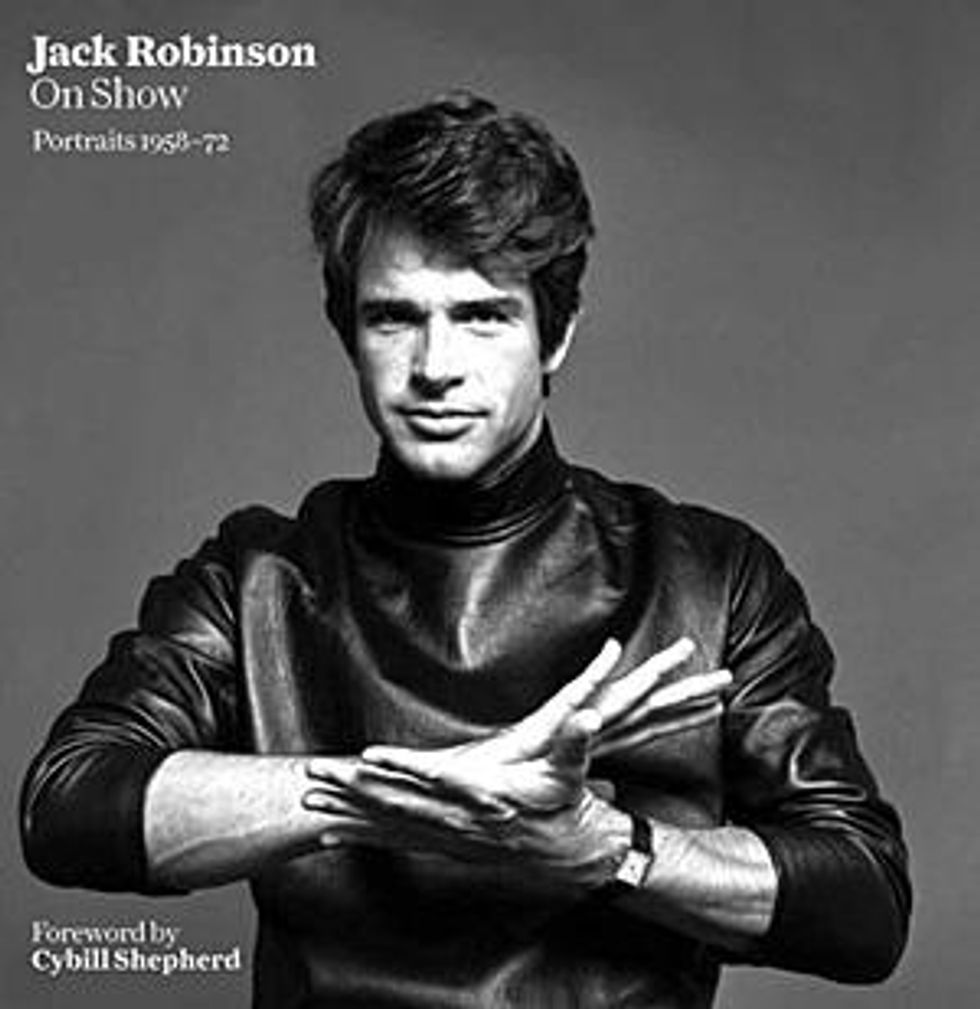 In a mere 17 years, photographer Jack Robinson amassed a huge body of work that captured the faces and fashions of the 1960s. When he died at 69 in a Memphis hospital on December 15, 1997, his friend Dan Oppenheimer -- who owns the Rainbow Stained Glass Studio in Tennessee and had worked with Robinson on stained glass projects -- was the surprise sole beneficiary of his will. While going through his things, Oppenheimer, probably as close a friend as Robinson had then, discovered two things: that he had been a famed photographer and that he was gay.
In a mere 17 years, photographer Jack Robinson amassed a huge body of work that captured the faces and fashions of the 1960s. When he died at 69 in a Memphis hospital on December 15, 1997, his friend Dan Oppenheimer -- who owns the Rainbow Stained Glass Studio in Tennessee and had worked with Robinson on stained glass projects -- was the surprise sole beneficiary of his will. While going through his things, Oppenheimer, probably as close a friend as Robinson had then, discovered two things: that he had been a famed photographer and that he was gay. 